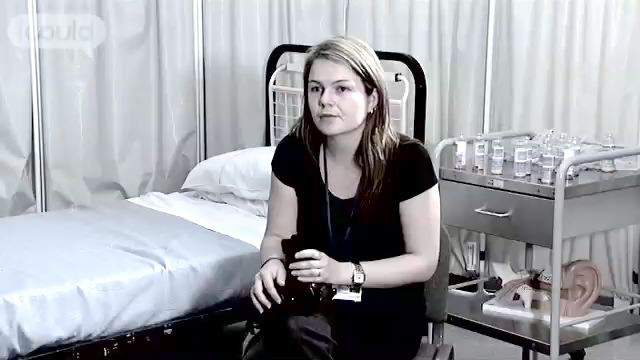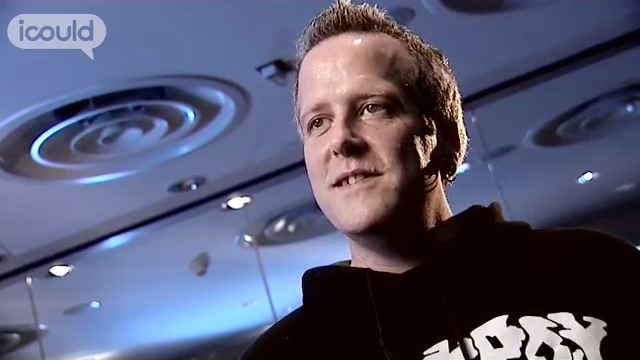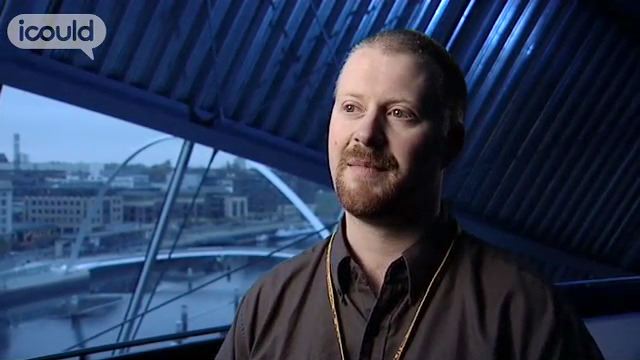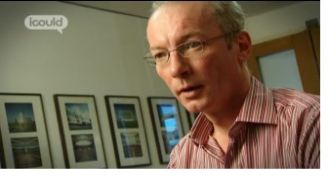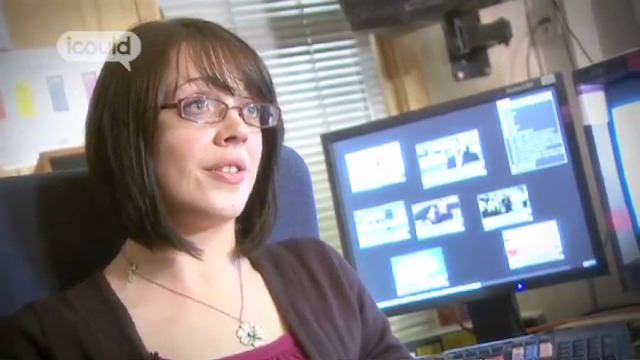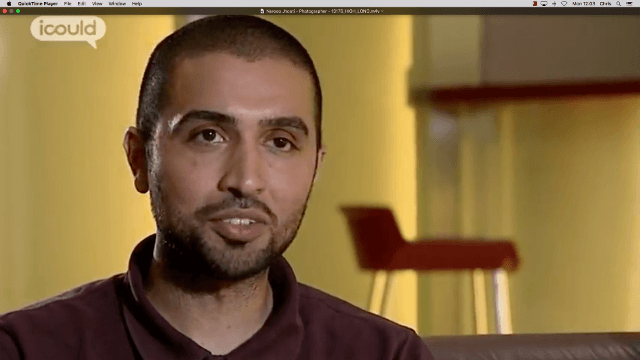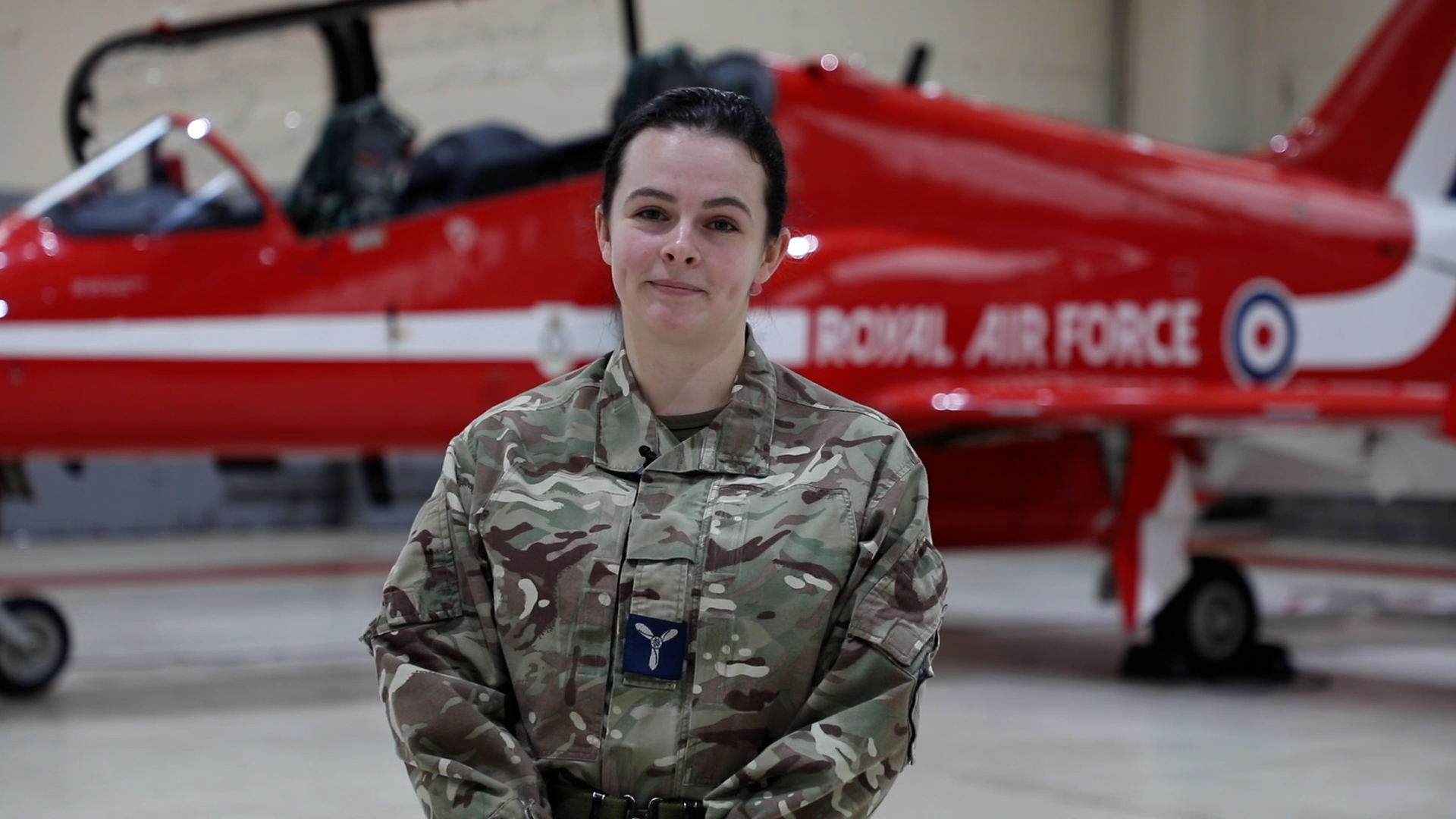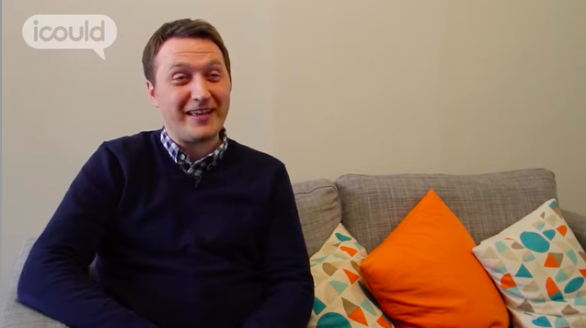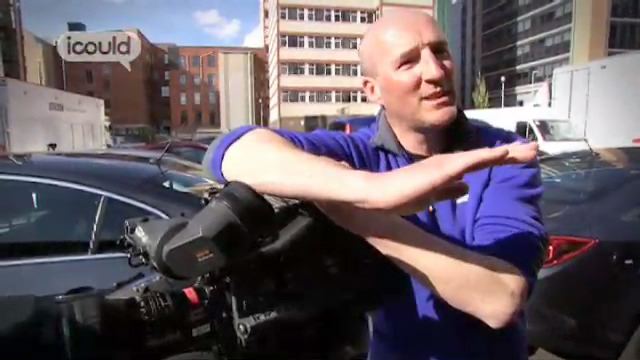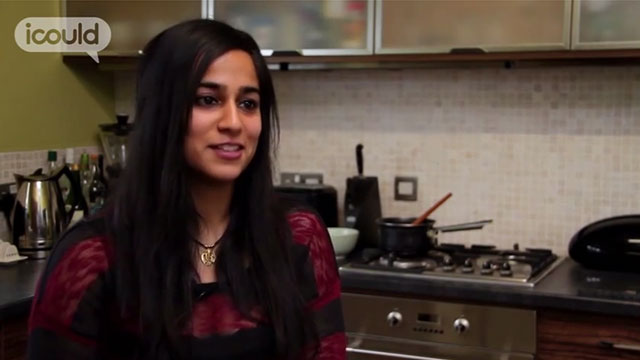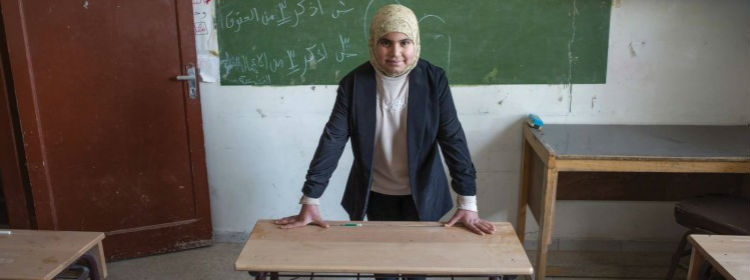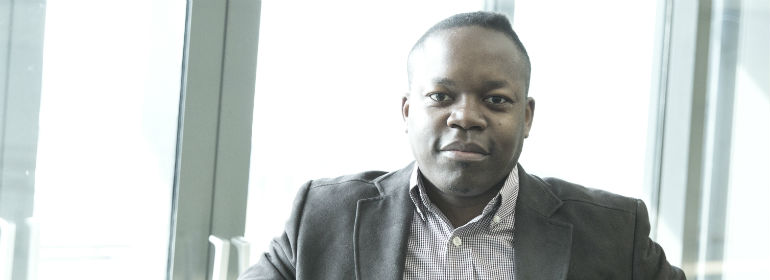Photographer
Rolling Sound
Robin B
0:00:02 My name’s Robin B and my job title is Photographer. It’s been quite a strange journey, to be honest with you, ‘cos I never actually went to university to do photography. It started off, I’ve done a computer science degree, you know, normal Asian kind of thing. So done that and then I was never quite happy with it, you know. So I had to kind of, after I left university, I had to still educate myself to find out what would make me more happy working, you know, ‘cos I was earning way more money when I was doing computers but I was doing music in my spare time during that time.
00:00:31 So there was something artistic which I needed to express. And see, my photography seems something that came even more easier to me than music. It’s something that was almost intuitive, like I didn’t even have to learn it, you know, it’s just there.
00:00:44 So knowing that, I worked on that for a few years and I started to do street photography in London. Tried to learn photography that way.
00:00:52 Because I taught myself, it meant that the education I gave myself was geared towards me as a person rather if I went to college ‘cos I was going to actually do a masters in photography, go back to college. So I went to Goldsmiths and they were like yeah, come along.
00:01:06 And then I kind of looked at the syllabus and I realised that you don’t actually take pictures, you just learning about theory. You know, there’s no practical there. And this is half of my problem with conventional education. There’s no enough action, there’s not enough work. There’s just theory and well we can talk about this subject in great depth but where your pictures?
00:01:23 Then I self-assigned myself a project which is within the grime and hip-hop musical culture of London and literally, I’ve been in that for three years and that’s kind of made me as a photographer. As it came, I entered that world and I started to document the live music scene and from that, I got involved in doing the album artwork and now like from that, I’m doing a lot big people and this…like I’m basically a freelance photographer now.
00:01:48 I remember when I was young, I went to architecture always, and always, I’m still into to building designs and stuff like that. I ended up doing a computer science degree and I’m really good at computers as well. It’s not a problem but it’s not something that I’d want to do day in day out. I’ve done that actually and I found it painful, do you know, that sounds like quite an aggressive word to use but it was literally like that. Walking in and there’s people there, you know, these are not creative people. I didn’t get on with these people. I’m forced to work with them between the hours of nine to five ‘cos society says such, you know. So I had to change that.
00:02:20 No, I’m not lying to you. Like I’m starting to get support off my parents. Only in the last half a year and I was really bitter with them before then. It used to fuel me that I wanted to show them that this is going to happen. But you know what? I think in the back of everyone’s mind, you just want, no matter how old you are, you just want your parents’ approval. Okay, right. So my dad’s starting to go like right, yeah, you’ve, and I’m like wow, this is great, and now because he’s seeing where I’m going, our own relationship has improved.
00:02:45 I’ve got a project which I’m going to actually start soon. I just want to go around into villages and stuff like that and just do more of a social documentary kind of project. So it becomes deeper. It just doesn’t become music photography, in it to make the money. It’s a case of this is deeper, this is about me trying to express something and if I lose track of that, I think I’ve sold out, just as simple as that and hopefully that doesn’t happen.
00:03:06 It’s very hard work, I’m not going to lie to you. I really don’t even get a day off these days but it’s full of love man. I wouldn’t be doing anything else, you know. So I don’t get tired from this. You know, if I was doing this much on nine to five work, something that wasn’t in my command, I’d be exhausted but because this is something I’m in total control of, it’s like an inexhaustible energy.
00:03:26 It’s about finding what you want to do. I’m finding a lot more my friends are going I’ve done the nine to five thing and you know what, I just picked up a pencil the other day and I started to draw and one of my friends the other day said he gave up, I just gave up my job. He goes he’s working in Canary Wharf and started to draw again and he goes next day, another job arrives where he was freelance. His drawing skills are being used. Like that’s just freaky but because he took the command I think and because he went no, I’ve had enough of this.
00:03:51 You find when you do that, other opportunities arise for you then, you know, ‘cos you’re looking for them. Do you know what I mean and I think sometimes it’s good not to be fearful and take the bull by the horns and then see what that brings on, yeah.
END
Robin B is a photographer. He has a degree in computer science but he felt he needed a job where he could express himself creatively. He is a self-taught photographer. He has done a lot of work on the live music scene in London, and has produced artwork for albums.
More information about Photographers, audio-visual and broadcasting equipment operators
The UK average salary is £29,813
There are 37.5 hours in the average working week
The UK workforce is 47% female and 53% male
Future employment
- Selects subject and conceives composition of picture or discusses composition with colleagues;
- Arranges subject, lighting, camera equipment and any microphones;
- Inserts lenses and adjusts aperture and speed settings as necessary;
- Operates scanning equipment to transfer image to computer and manipulates image to achieve the desired effect;
- Photographs subject or follows action by moving camera;
- Takes, records and manipulates digital images and digital video footage;
- Controls transmission, broadcasting and satellite systems for television and radio programmes, identifies and solves related technical problems;
- Checks operation and positioning of projectors, vision and sound recording equipment, and mixing and dubbing equipment;
- Operates equipment to record, edit and play back films and television programmes;
- Manages health and safety issues;
- Operates sound mixing and dubbing equipment to obtain desired mix, level and balance of sound.
